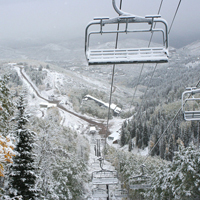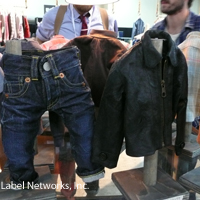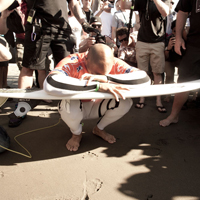
Burton Snowboards
The news today from Burton Snowboards that they were shuttering their Burton Manufacturing Center (BMC) in Vermont and moving board production to their facility in Austria, hit us hard. It was like hearing that Ben & Jerry’s design and packaging would still be in Vermont, but the ice cream would be coming from European cows.
Unfortunately, this marks the state of the economy and the toll it’s had on the snow sports industry hardgoods industry. No matter how rosy the Snow Industries of America (SIA) seem to paint the picture with their press releases, the hardgoods industry and snow sports in general have been seriously hit hard in the last couple of years as consumer demand has shifted. Maybe that’s because we look at consumer data vs. retailer data and can tell you where consumers are spending their dollars, and where they aren’t, and why.
As a snowboarding industry veteran, riding several different types of boards (including a Burton in my quiver), hearing that the 43 employees at the Burton Manufacturing Center in Vermont would be losing jobs was tough to swallow. Far worse than hearing that GM closed plants in Detroit and Flint. Maybe because snowboarding is such an American sport, it started here, with Burton no less, and our team once again did so well in the Olympics. These things combined make it seem as though its leader in manufacturing, and all of its aspects in producing a board, should of course be here.
According to the press release, Burton’s product design and development will remain in Vermont, but BMC will close in June, 2010.
Here%uFFFDs the press release:
Burton today announced that it will shift premium snowboard production from its small, Vermont-based Burton Manufacturing Center (BMC) to Austria, where the company has been building snowboards for over 25 years. Product design and development will still be home-grown in Vermont, where the company will relocate its snowboard prototyping resources from BMC into a new, purely R&D-driven prototype facility at its global headquarters in Burlington.
BMC, located in South Burlington, Vermont is slated to close in June of this year. Burton%uFFFDs premium factory in Austria already has the high-end technology and capacity to increase its production. 43 employees will be affected by BMC%uFFFDs closure, and Burton is working closely with the Vermont Department of Labor%uFFFDs Rapid Response program to assist these employees with unemployment and re-employment resources.
“When I started Burton Snowboards in 1977, all we did was make snowboards in Vermont,” says Jake Burton Carpenter, Founder and Chairman, Burton Snowboards. “Thanks to the BMC staff, we%uFFFDve excelled at prototyping and developing product in Vermont, which is why all four Burton Olympic halfpipe medals were won on snowboards coming out of our local factory. But simply put, it costs us significantly more to produce a board in Vermont than we are capable of selling it for, and sadly, this is not sustainable in the current economy.”
The relocated BMC R&D facility will continue to turn riders%uFFFD ideas into the most advanced prototypes on snow, with the added benefit of having all prototyping resources under one roof at Burton%uFFFDs global headquarters.
“Our biggest priority at Burton is to make the best product for snowboarders, and we do that by listening to riders and investing more in research and development than anyone in our industry,” says Burton CEO Laurent Potdevin. “It makes the most economic sense to produce all of our high-end snowboards in Austria. Here in Vermont, we will continue to focus on advanced product development, which will allow us to bring the latest snowboard technology to riders faster than ever before.”
Burton is the world%uFFFDs leading snowboard company and owns other top boardsports brands, including Channel Islands Surfboards, DNA Distribution (Alien Workshop and Habitat Skateboards), The Program (Forum, Special Blend and FOURSQUARE) Analog, Gravis, ANON and R.E.D. After the BMC manufacturing changes, Burton and its family of brands will employ over 900 people worldwide.


